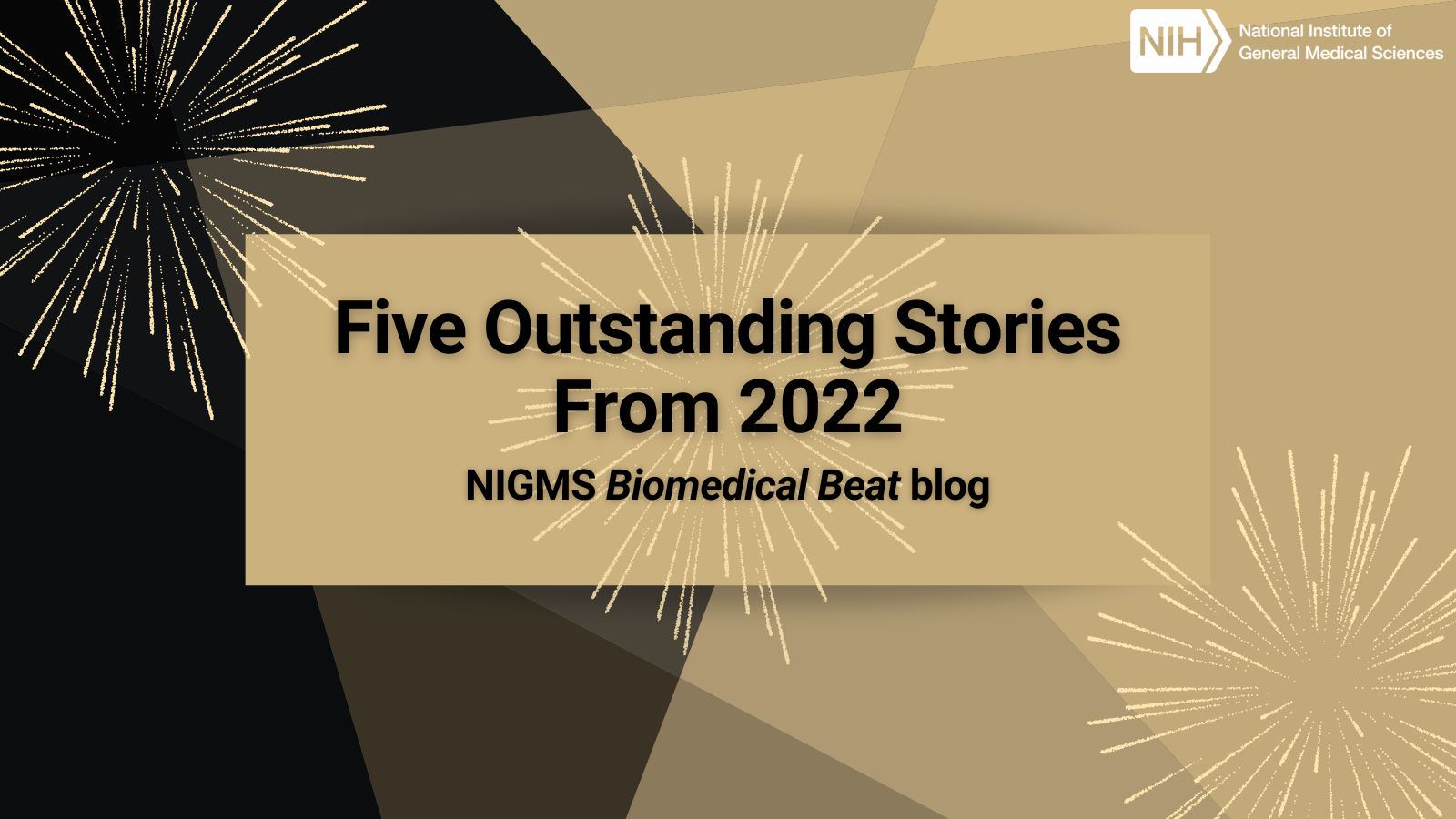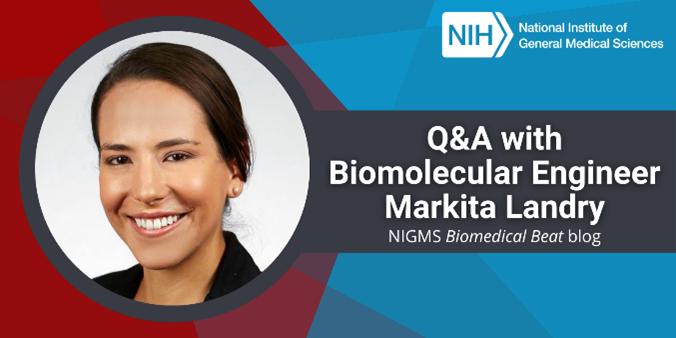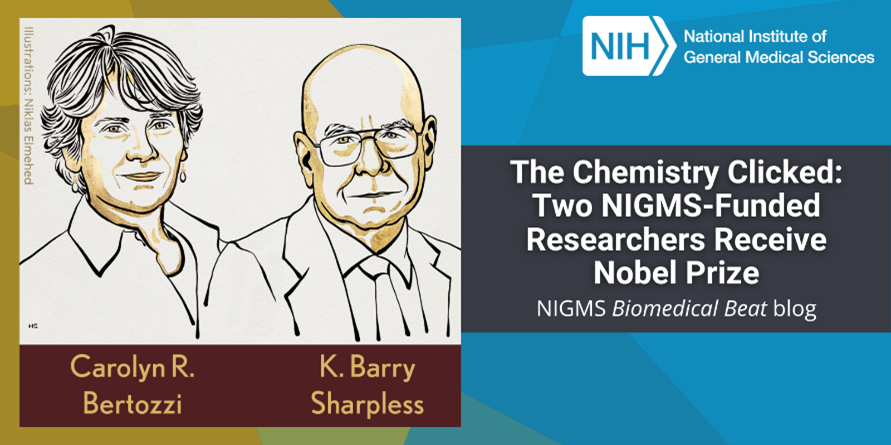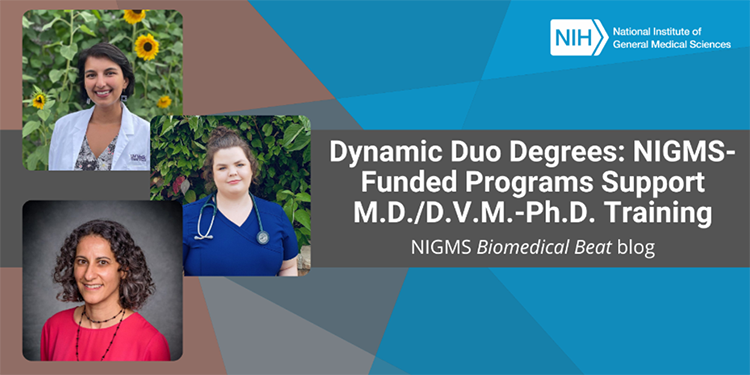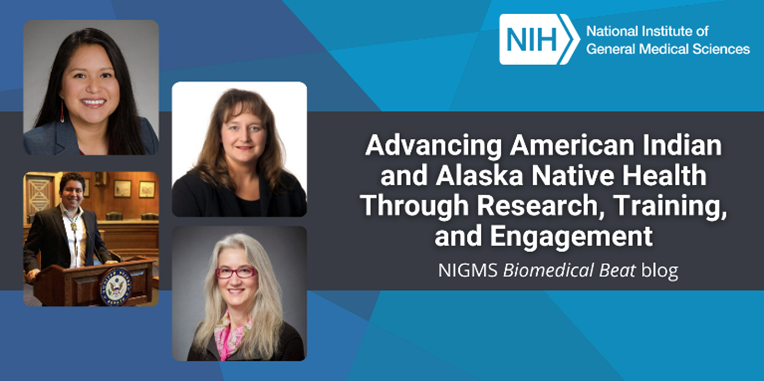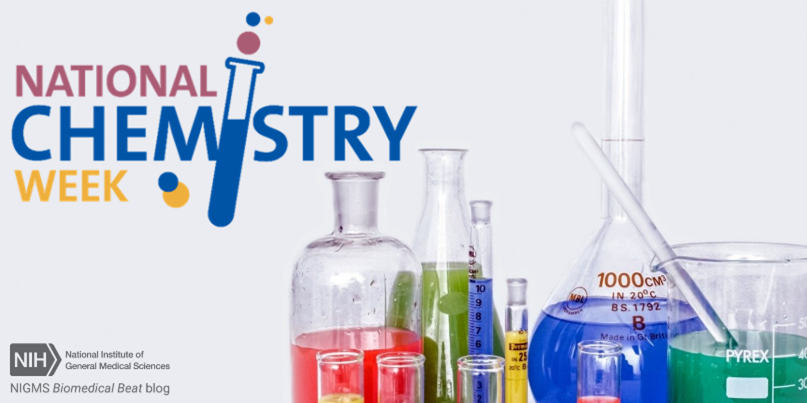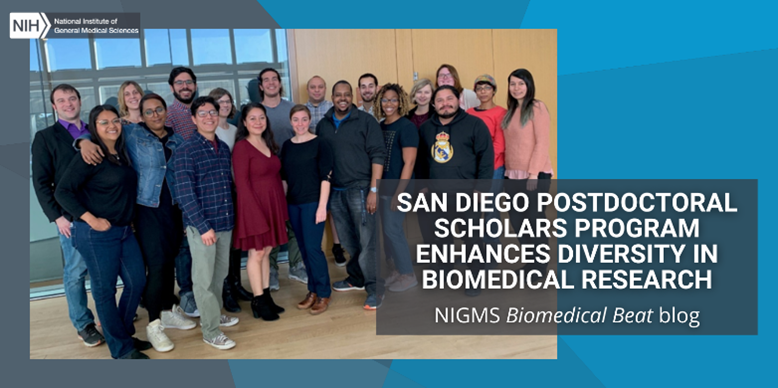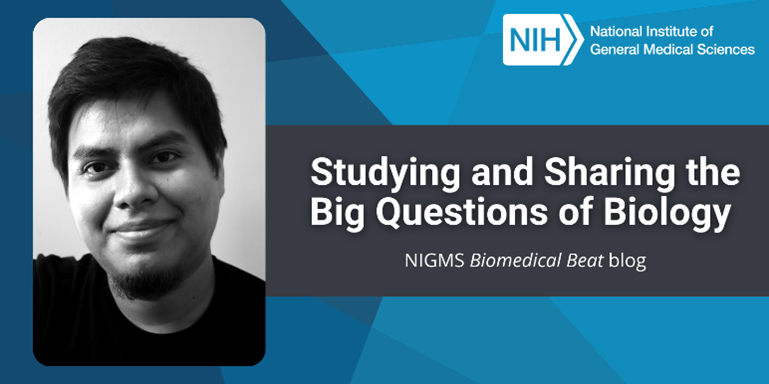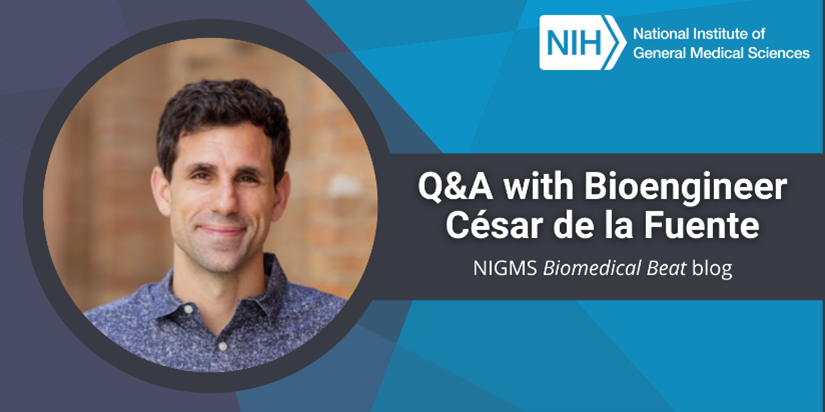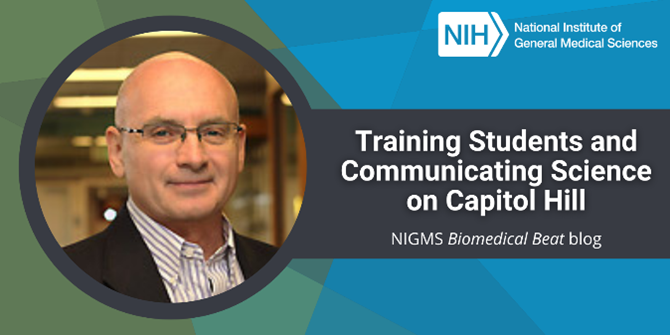Throughout 2022, we shared the stories of dozens of NIGMS-supported researchers, trainees, and programs. We also highlighted new STEM education resources, tested your knowledge with quizzes, showcased extraordinary scientific images, and more. To celebrate the upcoming new year, we’re highlighting five of our most popular posts from 2022. Check out the list below, and let us know in the comments section which of this year’s posts you liked best!
Continue reading “Five Outstanding Stories From 2022”Tag: Profiles
Career Conversations: Q&A With Biomolecular Engineer Markita Landry
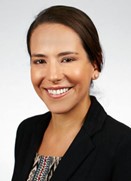
“I have a hard time envisioning a career more exciting than science. It’s really magical to see an experimental result and, for a moment, be the only person in the universe to know something about the world,” says Markita Landry, Ph.D., an associate professor of chemical and biomolecular engineering at the University of California, Berkeley. In an interview, Dr. Landry shares with us her scientific journey, research with nanoparticles, and interests outside of the lab.
Q: What sparked your interest in science?
A: I was indirectly exposed to science growing up because my mom was in computer science, but I think moving to the United States is what made me very interested in it. My mother is Bolivian; my father is French-Canadian; and I grew up mostly in Quebec, Canada. When I was halfway through high school, we moved to the United States, and, for the first time, my classes were taught in English. I really gravitated to math and science because they made sense regardless of the language they were taught in.
Continue reading “Career Conversations: Q&A With Biomolecular Engineer Markita Landry”The Chemistry Clicked: Two NIGMS-Funded Researchers Receive Nobel Prize
Since its creation in 1962, NIGMS has supported the work of the recipients of 94 Nobel Prizes—44 in physiology or medicine and 50 in chemistry. NIGMS-funded investigators perform cutting-edge basic research that is foundational to understanding normal life processes and disease. Such important breakthroughs in chemistry and biology often fuel more focused research that, years later, leads to important medical advances or products such as medicines or biotechnology tools.
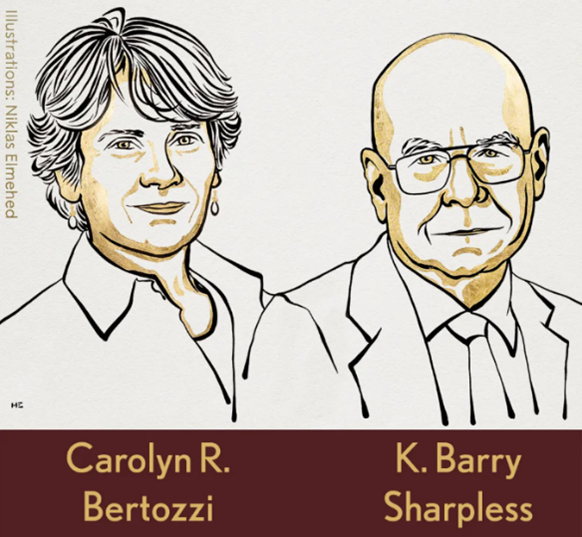
The most recent NIGMS-supported Nobel laureates are Carolyn R. Bertozzi, Ph.D., the Anne T. and Robert M. Bass Professor in the School of Humanities and Sciences at Stanford University in Stanford, California, and K. Barry Sharpless, Ph.D., the W.M. Keck Professor of Chemistry at the Scripps Research Institute in La Jolla, California. They, along with Morten Meldal, Ph.D., a professor of chemistry at the University of Copenhagen in Denmark, are being recognized with the 2022 Nobel Prize in chemistry for their work on a transformative scientific approach known as “click chemistry.” The three scientists will receive their awards during a ceremony in Stockholm, Sweden, on December 10, 2022.
Continue reading “The Chemistry Clicked: Two NIGMS-Funded Researchers Receive Nobel Prize”Dynamic Duo Degrees: NIGMS-Funded Programs Support M.D./D.V.M.-Ph.D. Training
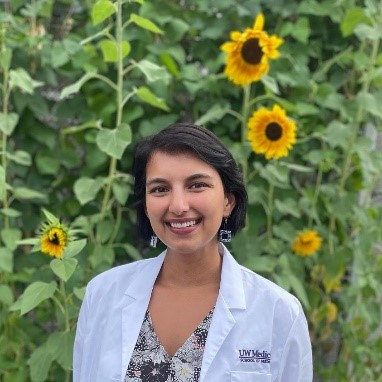
“Being able to ground your research in questions coming directly from your patients and their families is so meaningful and a huge part of why I’m interested in becoming a clinician-scientist,” says Amelia Wilhelm, an M.D.-Ph.D. student in the NIGMS-supported Medical Scientist Training Program (MSTP) at the University of Washington in Seattle. MSTPs prepare students to combine clinical practice and rigorous scientific research in their future careers.
Continuing the Family Tradition in Science
As a child of two scientists, Amelia was exposed to research and medical careers from an early age. She earned a bachelor’s degree in chemistry at Bates College in Lewiston, Maine, and then began working as a lab technician at the Children’s Hospital of Philadelphia in Pennsylvania. Watching the principal investigator of her lab, clinician-scientist Lindsey A. George, M.D., interact with patients inspired Amelia to pursue a similar career.
Continue reading “Dynamic Duo Degrees: NIGMS-Funded Programs Support M.D./D.V.M.-Ph.D. Training”Advancing American Indian and Alaska Native Health Through Research, Training, and Engagement
American Indian and Alaska Native (AI/AN) populations have long experienced health disparities such as higher rates of diabetes, certain cancers, and mental health conditions than those of other Americans. One contributing factor in these disparities is underrepresentation of AI/AN populations in biomedical science—as study participants, researchers, and health professionals. Unfamiliarity with health care options and opportunities, coupled with a distrust of biomedical research resulting from unethical studies in the past, have exacerbated this underrepresentation.
NIGMS-supported researchers, including Native scientists, are partnering with AI/AN Tribes to help reduce health disparities by conducting research focused on AI/AN health priorities and building infrastructure that supports research in those communities. They’re also preparing Native students to pursue careers in science and medicine. In this post, you’ll meet four scientists advancing AI/AN health.
Continue reading “Advancing American Indian and Alaska Native Health Through Research, Training, and Engagement”National Chemistry Week: Recent Interviews With NIGMS-Funded Chemists
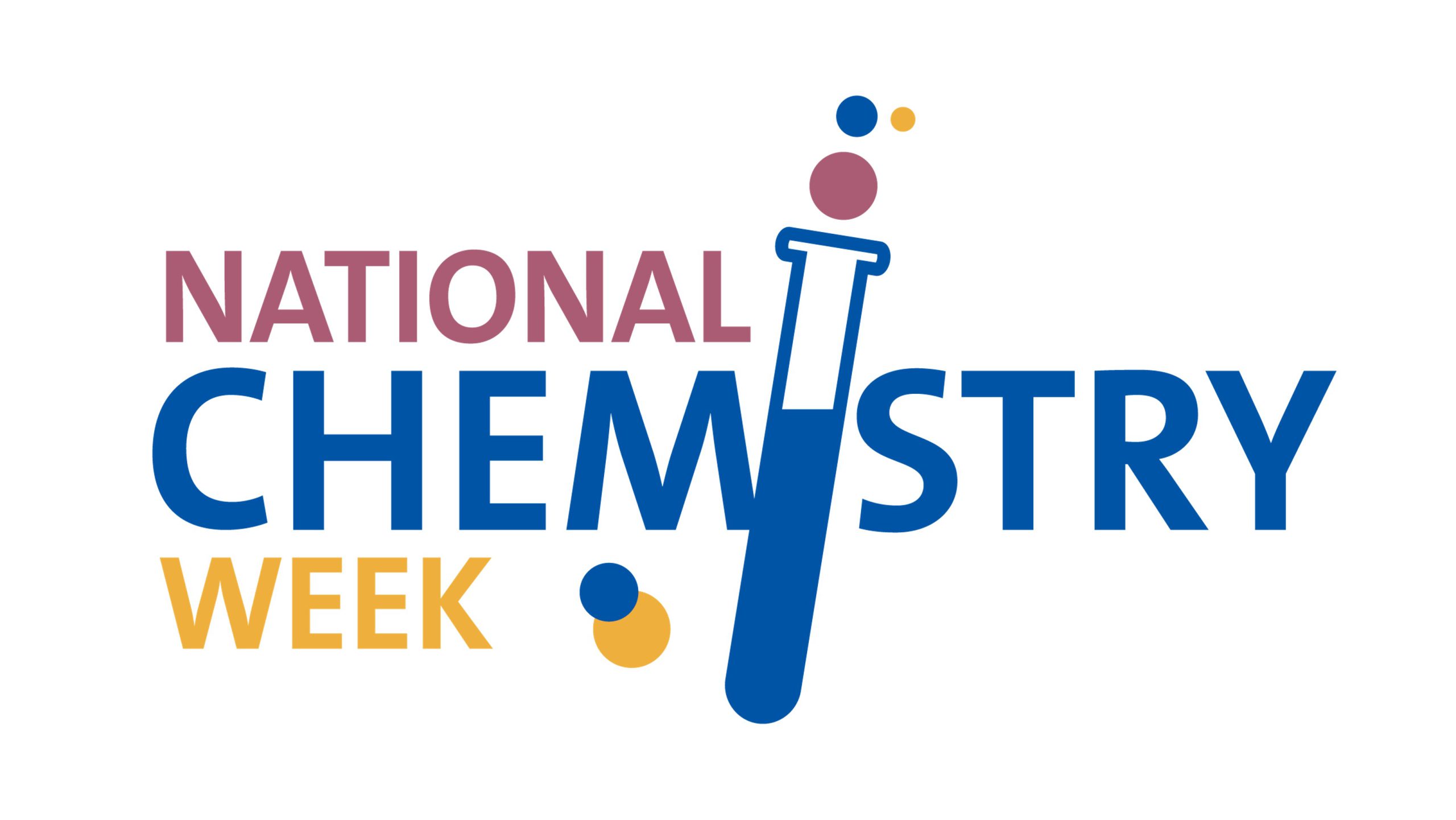 Credit: ACS Website.
Credit: ACS Website.
It’s almost National Chemistry Week (NCW)! Each year, the American Chemical Society (ACS) unites scientists, undergraduate students, high school chemistry clubs, and other groups through this community-based program to reach the public—especially elementary and middle school
students—with positive chemistry messages.
San Diego Postdoctoral Scholars Program Enhances Diversity in Biomedical Research
“I’m most proud of how this program is truly impacting the diversity of academia by including individuals from backgrounds historically underrepresented in STEM and the biomedical research workforce,” says JoAnn Trejo, Ph.D., professor at University of California San Diego (UCSD) and director of San Diego’s Institutional Research and Academic Career Development Award (IRACDA). The program, now in its 20th year of NIGMS funding, aims to train a diverse group of postdoctoral fellows (postdocs) for both the teaching and independent research aspects of a career as a professor in the biomedical sciences.
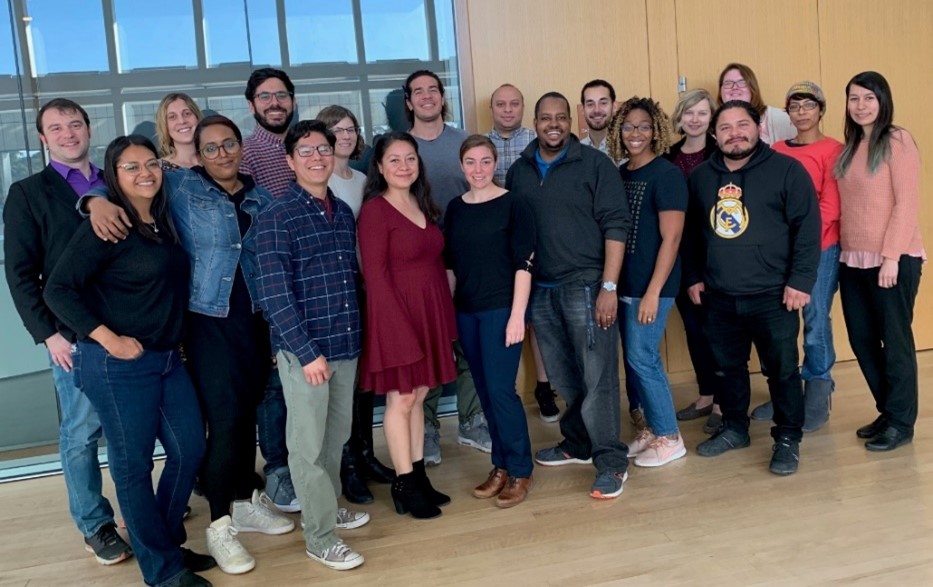
The San Diego IRACDA focuses on preparing its fellows for tenure-track positions at different types of institutions, including research-intensive universities. Fellows typically go through a 3-year program where they work in a research lab at UCSD, teach at one of the two “partner” schools (both of which are minority-serving institutions), and take career development courses in skillsets like effectively mentoring, running a cutting-edge research lab, and innovatively redesigning undergraduate science courses. Fellows also mentor students at the partner schools, helping them prepare graduate school applications, putting them through mock interviews, educating them in research, and teaching them how to read and understand scientific literature.
Continue reading “San Diego Postdoctoral Scholars Program Enhances Diversity in Biomedical Research”Studying and Sharing the Big Questions of Biology
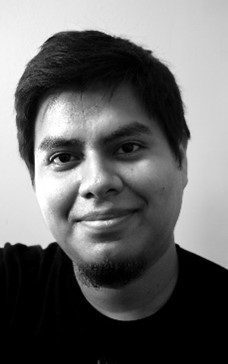
When he started high school in Mexico, Pedro Márquez-Zacarías, Ph.D., wanted to be a politician. However, as he became aware of issues like corruption, he began looking into other fields. Chemistry fascinated him, so he enrolled in a class at his school that was later canceled partway through the year. He then joined a biology class because it included a unit on biochemistry, and through that experience, found that he enjoyed other aspects of biology as well—so much so that he went on to compete in the International Biology Olympiad, a competition for high school biology students.
After graduating from high school, Dr. Márquez-Zacarías majored in biomedical sciences at Universidad Nacional Autónoma de México and discovered a passion for ecology and evolution. During a class activity where students had to present scientific papers, the work of evolutionary biologist William Croft Ratcliff, Ph.D. riveted him. Dr. Márquez-Zacarías began an email conversation with Dr. Ratcliff that led to visiting his NIGMS-supported lab at the Georgia Institute of Technology (Georgia Tech) in Atlanta.
Continue reading “Studying and Sharing the Big Questions of Biology”Career Conversations: Q&A With Bioengineer César de la Fuente
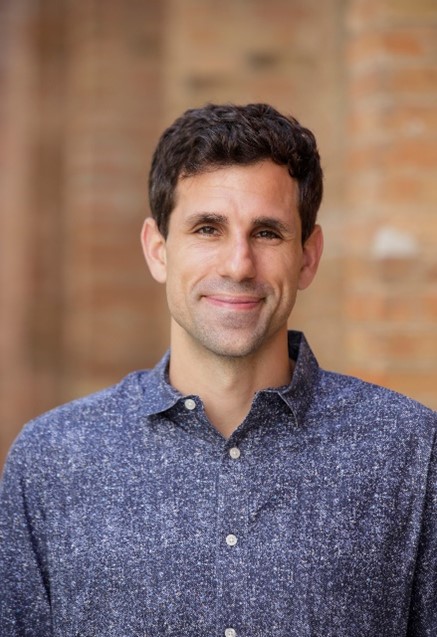
“Science provides adventure and excitement every single day. When you’re pushing boundaries, you get to jump into the abyss of new areas. It can be scary, but it’s an incredible opportunity to try to improve our world and people’s lives,” says César de la Fuente, Ph.D., a Presidential Assistant Professor in the Perelman School of Medicine and School of Engineering and Applied Science at the University of Pennsylvania, Philadelphia. Our interview with Dr. de la Fuente highlights his journey of becoming a scientist and his research using artificial intelligence to discover new drugs.
Q: How did you first become interested in science?
A: I’ve always been fascinated by the world around me. I grew up in a town in northwest Spain, right on the Atlantic Ocean. As a kid, I would go to the beach to investigate marine organisms and bring home all sorts of different fish to study. My mom wasn’t too happy about that! We’re all born scientists, but we tend to lose that curiosity as we enter adulthood. The key is to not lose our ability to learn every day.
Continue reading “Career Conversations: Q&A With Bioengineer César de la Fuente”Training Students and Communicating Science on Capitol Hill
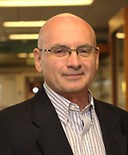
“I’ve been infected with this enthusiasm for science, and I think that carries over to my students. Essentially, I lead by example,” says Mikhail Bobylev, Ph.D., a professor of chemistry at Minot State University in Minot, North Dakota. He researches ways to improve the chemical synthesis of medicinal molecules, and since 2004, he’s has mentored more than 70 undergraduate researchers in his lab with support from the NIGMS-funded North Dakota IDeA Networks of Biomedical Research Excellence (INBRE).
Dr. Bobylev focuses on training students to conduct rigorous, meaningful research and to communicate it clearly to a variety of audiences, including the general public, scientists, and policymakers. He believes that this emphasis on strong communication skills is one of the reasons why his students were often selected for Posters on the Hill—a prestigious annual event where undergraduate researchers presented their work to lawmakers in Washington, D.C. Since 2008, 10 of his mentees were chosen to participate.
Continue reading “Training Students and Communicating Science on Capitol Hill”

